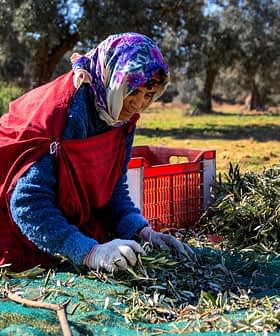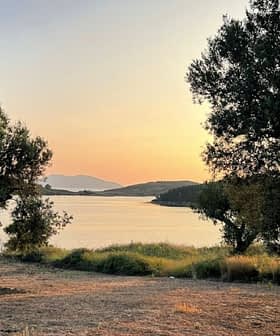Undeterred by Drought, Producers Across Spain Achieve Award-Winning Quality
Olive oil production in Spain dropped sharply in the 2022/23 crop year. Still, producers managed to obtain outstanding results.
 Night harvesting helped Fuenquesada beat the heat and acheive award-winning results.
Night harvesting helped Fuenquesada beat the heat and acheive award-winning results. Part of our continuing special coverage of the 2023 NYIOOC World Olive Oil Competition.
Farmers and producers from the world’s largest olive oil-producing country celebrated their success at the 2023 NYIOOC World Olive Oil Competition.
While results continue to be announced through April, 88 Spanish extra virgin olive oils have already been awarded from 135 entries.
For Oli de Santanyi, an NYIOOC award is a sign of class and important marketing. It helps establish new business contacts and opens doors.
Despite Spain suffering from its lowest harvest since the 2012/13 crop year – producing slightly less than 700,000 tons of olive oil – entries to the world’s largest olive oil quality competition did not decrease significantly.
Instead, producers across the country worked hard to overcome the Iberian peninsula’s historic drought. Many interpreted their NYIOOC awards as proof that investment, research and on-the-spot problem-solving paid off.
See Also:The Best Spanish EVOO“The lack of rain has been the main challenge we have faced in the last campaign,” Félix González Quesada, the president of Fuenquesada, told Olive Oil Times.
“We have had to carry out a very efficient nocturnal programming of integrated irrigation to optimize the use of the very scarce water resources,” he added.
In Jaén, the most prolific olive oil-producing province in Andalusia, Fuenquesada earned a Gold Award for a monovarietal Picual.
Despite the challenging season, González Quesada said his 2022/23 harvest was better than the previous one when he did not harvest at all.

(Photo: Fuenquesada)
“Last year (2021/22), we had to make a difficult decision, not bottling, due to the lack of the adequate quality that we require to share our oil with our family of customers,” he said. “This vintage (2022/23) has been excellent.”
“The Gold Award gives us the conviction that our methods and efforts, together with our quality assurance system, are adequate to produce extra virgin olive oil of exceptional quality on a continuous basis,” González Quesada added.
The producer attributed some of his success to an early harvest, which began in mid-October, good agronomic practices in his traditional and modern groves and the speed – less than four hours – with which olives are harvested, transformed and filtered.
Fellow Andalusian producer Oleocampo also overcame drought and celebrated success at the World Competition, earning a Gold Award for its medium-intensity Picual.
“For Oleocampo as a cooperative, its farmer members are proud to win this award year after year as a result of constant work to achieve the highest quality of our products,” marketing manager Javier Martos García told Olive Oil Times.
He said the cooperative’s success – nine consecutive NYIOOC accolades – stems from the exhausting efforts to select the best olives and transform them following standard best practices to achieve consistent quality.
“The recognition provided by the NYIOOC award is always a sign of quality for customers when purchasing and tasting our premium extra virgin olive oil,” he said.
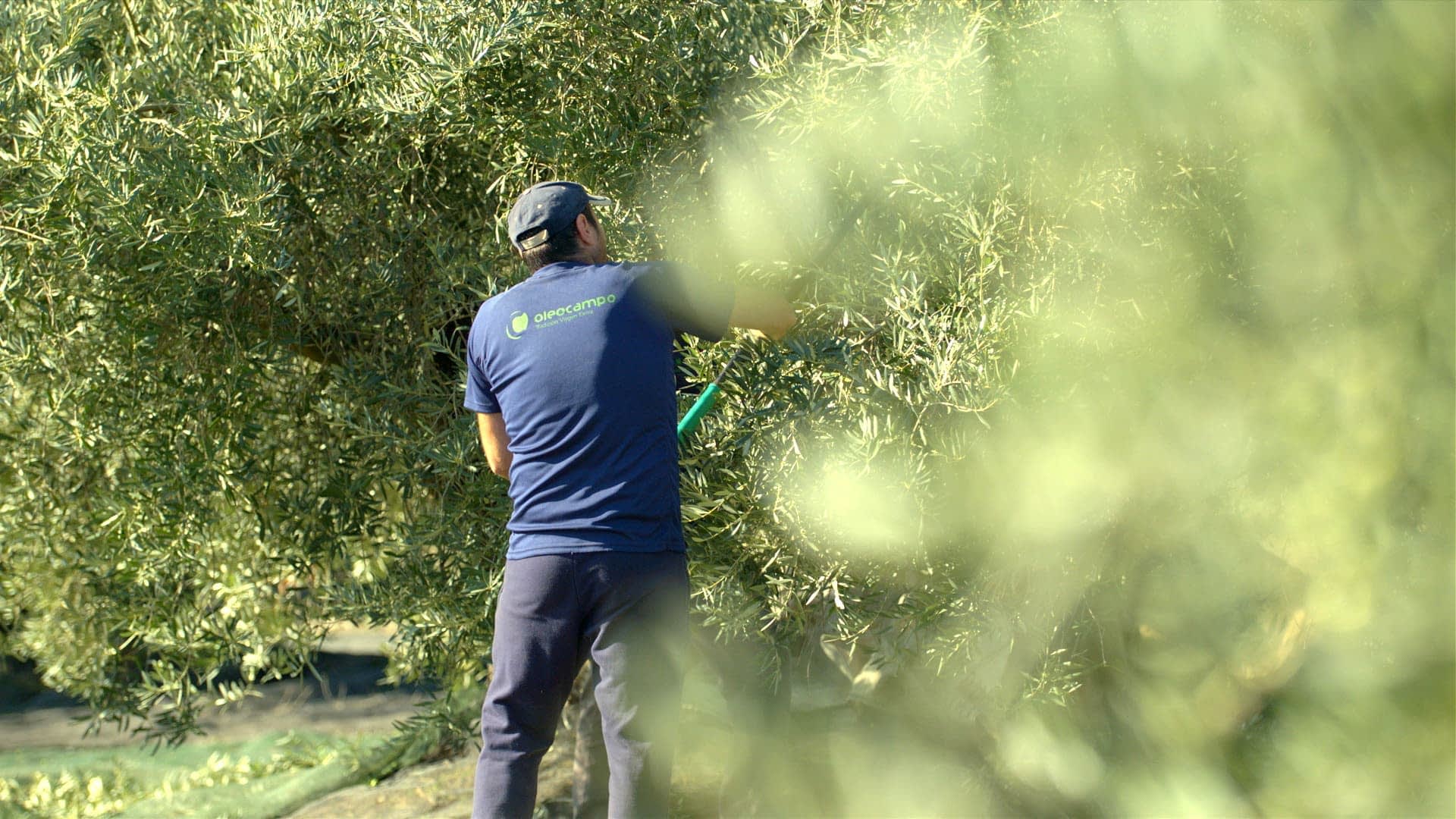
The members of the Oleocamo cooperative celebrate a ninth-straight award at the World Competition.
Andalusia is the world’s largest olive oil-producing region by a wide margin. While yields slumped to around 500,000 tons this year, the autonomous community produces more than one million tons of olive oil annually. Still, plenty of award-winning producers come from the rest of the country.
On the exact opposite side of Spain is Navarre. “Navarre is a northern area with various climates,” Aceite Artajo quality and marketing manager Andrea Urzaiz Huguet told Olive Oil Times.
“Where the farm is located, La Ribera del Ebro, is one of the areas with the most hours of sunshine per year in the Iberian Peninsula, a very positive factor for olive production,” she added.
Aceite Artajo earned a Gold Award for its coupage, a medium blend made from early-harvested olives. “The award-winning oil, Artajo 10 Coupage, comes from producing more than 12 different olive varieties on the farm,” Urzaiz confirmed.
“Once prepared, the team carries out an internal tasting to achieve the best combination, looking for a complex and balanced extra virgin olive oil,” she added.
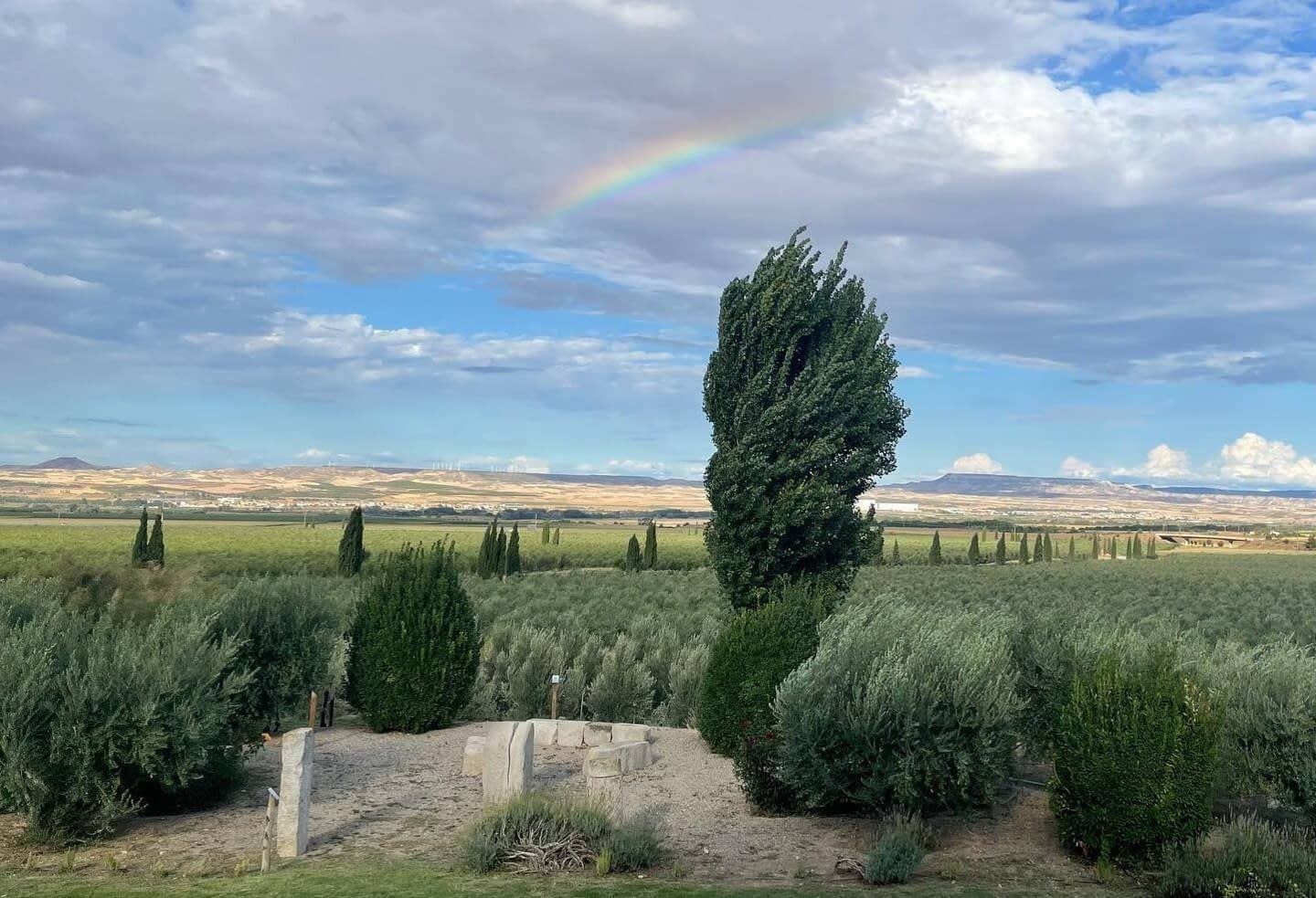
Heat and drought affected production in the northern region of Navarre too.
Like her compatriots in Andalusia, Urzaiz said she had to overcome high temperatures in May, which damaged some of the blossoms on the olive trees and prevented them from producing olives and the ongoing drought.
“The challenges for the future have to do with the availability of water and the maximum optimization of that water since we are now going through a severe drought that suggests a harsh summer,” Urzaiz said.
“Also, as it is an extreme climate, hot and cold, we face the challenge of frost in November that could affect quality,” she added.
As a result, she said winning awards in New York is very gratifying “since the prestige of the NYIOOC can drive our next goal in exports, which is developing our brand in the United States,” Urzaiz added.
Farther south in Castilla-La Mancha, Spain’s second-largest olive oil-producing region, the 788 families who make up the Sociedad Cooperativa Olivarera de Valdepeñas (Colival) also worried about climate extremes as they harvested the olives destined for their award-winning oil.
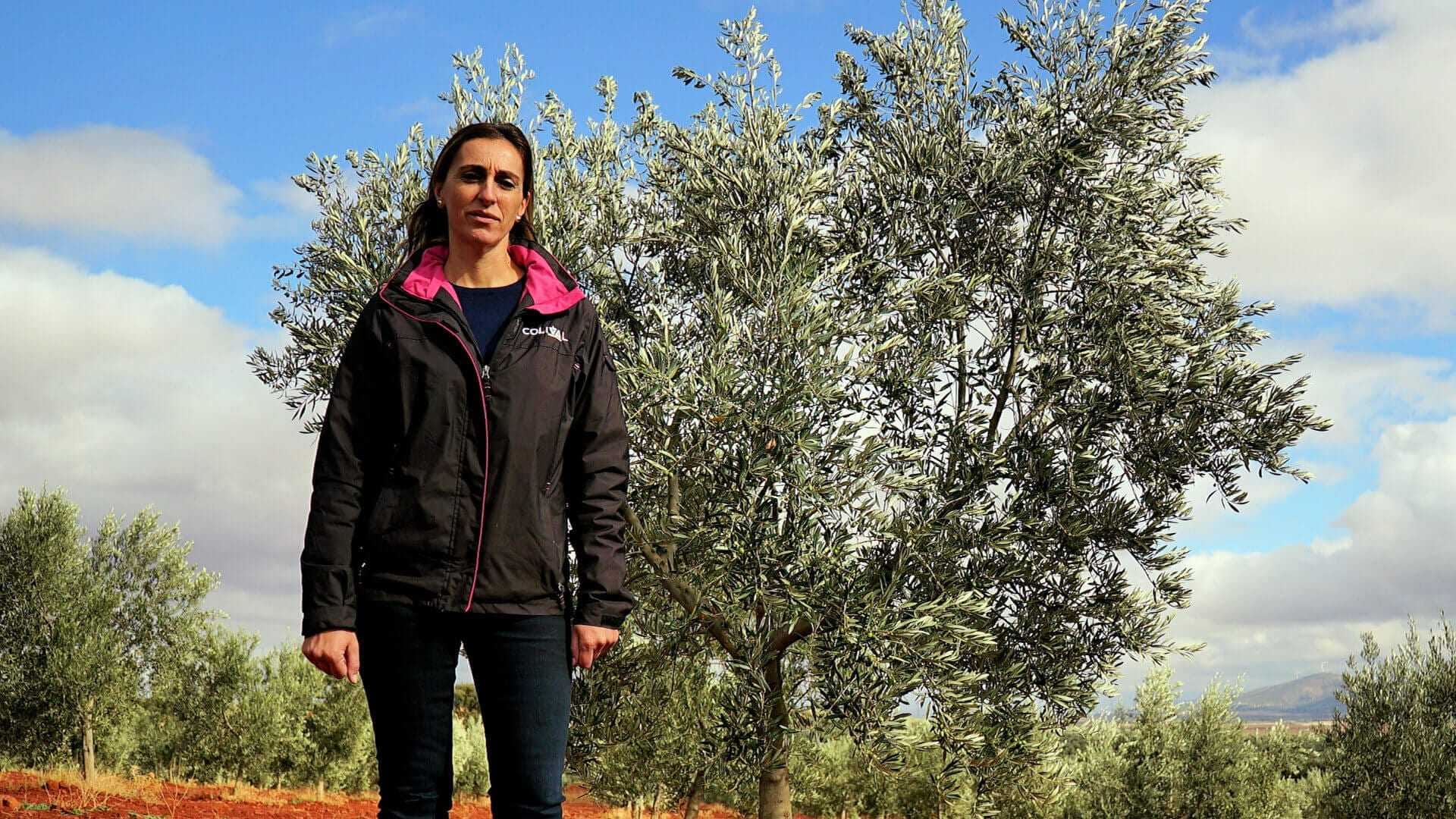
(Consoli Molero)
“Our harvest is carried out in October,” production manager Consoli Molero told Olive Oil Times. “Now, in October, we face very high temperatures during the harvest. We try to harvest at dawn with low temperatures and do the grinding process before noon, and keep the temperature of the oil low in the sieve the same as in the centrifuge and rapid filtering.”
The cooperative won a Gold Award for its medium-intensity Valdenvero Arbosana brand. Molero said the climate extremes both helped and created challenges during the harvest in the central Spanish region.
“In Castilla-La Mancha, there is a lot of drought and very dry temperatures in summer, which causes water stress to be present in the fruit,” Molero said. “This creates the itching and bitterness in the oil, which we must work in a centrifuge to make a balanced oil.”
She attributed the cooperative’s success in the competition to the farming families’ ability to work together in pursuit of quality instead of quantity.
“Our success is working as a team with the farmer,” Molero said. “Since it is the mainstay where the product is obtained, we advise the farmer the optimal moment of harvesting, and we sacrifice performance in exchange for quality.”
“Thus, we obtain a different olive juice with organoleptic qualities different from other oils,” she added. “In the mill, we pamper the olives, working without temperature, a fast process and achieving a product full of polyphenols.”
Molero said the farmers behind the cooperative always appreciate when their efforts are recognized and hope the awards will help familiarize the brand with consumers in North America.
Along with drought, Spain’s olive oil producers faced challenges created by the global macroeconomic situation. Chief among these was the effects of inflation, the Russian invasion of Ukraine and supply chain disruptions on production costs.
Still, this did not stop Molí Coloma. Located in Catalonia, Spain’s fourth-largest olive oil-producing region, Molí Coloma earned three Silver Awards in New York, according to spokeswoman Cristina Gómez.
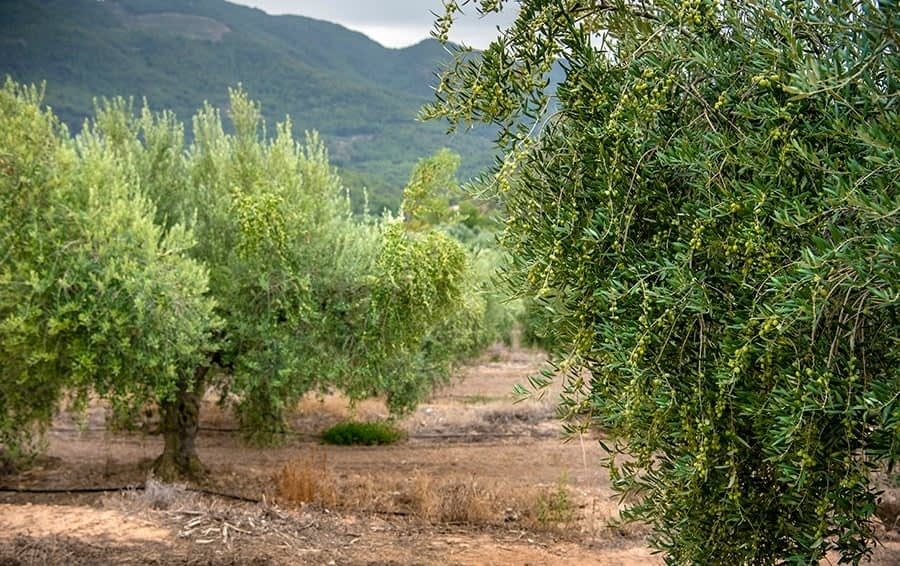
Climate change remains the mosty significant challenge facing producers in Catalonia.
“We are very happy to receive recognition for the work done throughout the year,” she told Olive Oil Times. “We believe that it is the best way to reaffirm our work and our passion for the production of quality extra virgin olive oil.”
“The accumulated drought, together with the increase in costs, have been the clearest challenges of this past harvest,” Gómez added.
Molí Coloma is located in Subirats, just west of Barcelona, and produces olive oil on the estate of a 15th-century paper mill surrounded by olive trees and vines.
She attributed the company’s success in the competition to carefully monitoring the entire process, from olive development to harvesting and production. Gómez said the company works hard to follow best practices and incorporate cutting-edge technology.
She added that international awards helped Molí Coloma tell potential customers and business patterns about their commitment to sustainability and human health.
“We want to transmit the importance of producing and consuming quality extra virgin olive oil,” she said. “On the one hand, the cultivation of the olive tree is a fundamental pillar for the conservation of our Mediterranean ecosystem, and at the same time, it produces a highly beneficial product for health.”
Just 250 kilometers south of Subrits, across the Balearic Sea, the producers behind Oli di Santanyi celebrated winning a Gold Award for an organic blend, its tenth award at the competition.
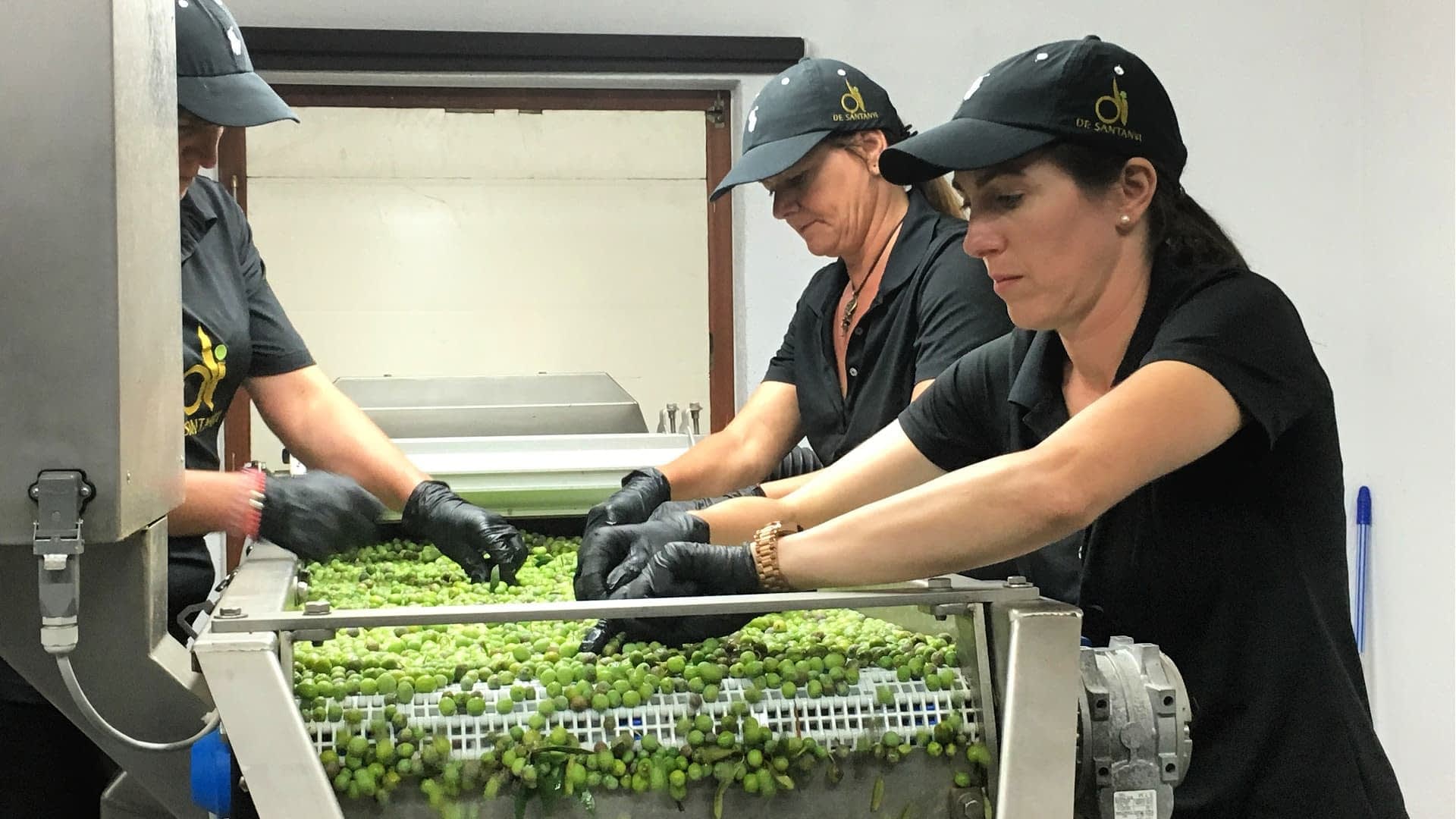
Selecting the best olives to transform into extra virgin olive oil is one of Oli Santanyi’s secrets to success.
“We are proud to be winners of the most prestigious olive oil quality contest in the world,” managing director Dirk Müller-Busch told Olive Oil Times. “It motivates us to continue producing one of the best extra virgin olive oils in the world and to try to improve every year.”
Müller-Busch attributes his success at the competition to the “extensive investigation” he and his colleagues did in olive groves from South America to Italy to find the best way to produce organic extra virgin olive oil.
Committing to an early harvest and the location of his groves between Mondrago Natural Park and the Mediterranean Sea on the island of Mallorca also contribute to the quality.
“We already started with the harvest at the end of September, beginning of October,” Müller-Busch said. “The still-green olives are harvested by hand, which is very labor intensive because the olives are still firmly attached to the tree.”
“Each variety is harvested and processed separately to maintain individual character,” he added. “It is not until after pressing and tasting that it is decided in what ratio the three varieties will be combined (coupage) to obtain the exclusive flavor of Oli de Santanyi.”
Müller-Busch further attributed his sustained success at the competition to his specially-constructed mill. “It allows us to harvest the olives extremely early to obtain an enormous amount of valuable substances,” he said.
“Since polyphenols oxidize very quickly, we process the olive mass in hermetically sealed blenders and under pressure,” he added. “The temperature is continuously controlled in all work steps to extract the oil at temperatures as low as 20 to 22°C.”
“To ensure the quality of the fresh oil, it is filtered directly after it is obtained from the decanter,” Müller-Busch continued. “The remaining cell water and the dissolved substances are removed to ensure the durability of the contained valuable substances and aromas.”
The producer cited drought and climate change as the most significant challenges he faces in producing award-winning olive oil. “This year, we have had to cool the olives immediately after picking them by hand and before processing them in our mill,” he said.
Müller-Busch hopes the award can promote his brand in the lucrative United States market and promote the natural beauty of Mallorca and the Balearic Islands more generally.
“For Oli de Santanyi, an NYIOOC award is a sign of class and important marketing,” he concluded. “It helps establish new business contacts and opens doors, especially since many celebrities from the United States have discovered the beauty of Mallorca, such as Michael Douglas, Nicole Kidman or George Freeman.”



